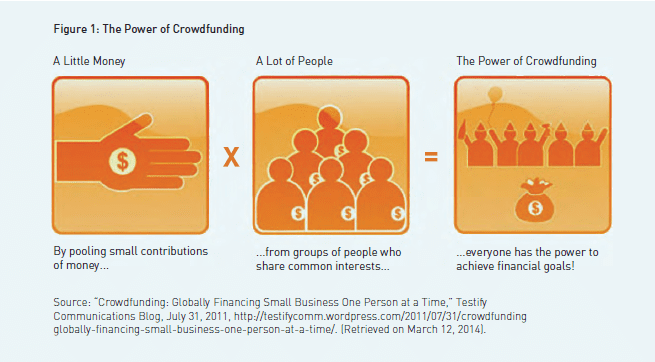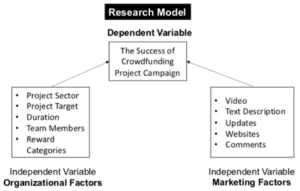In this article, you will learn about the powerful impact of online crowdfunding. By using an online crowdfunding platform, you have the opportunity to showcase your project or idea to a wide audience and gather support from people all over the world. This method has proven to be an effective way to raise funds and bring your dreams to life.
With an online crowdfunding platform, you have the freedom to share your story, connect with potential backers, and inspire them to contribute to your cause. The power of online crowdfunding lies in its ability to rally a community around a shared goal. By harnessing the collective power of individuals, you can not only raise the necessary funds but also build a network of supporters who believe in your vision. So why wait? Start exploring the world of online crowdfunding and unlock the potential to turn your ideas into reality.

The Power of Online Crowdfunding
What is Online Crowdfunding?
Online crowdfunding refers to the practice of raising funds for a project, business, or cause through the collective contributions of a large number of individuals. It is a modern approach to funding that utilizes the power of the internet and social networks to reach a wide audience and gather financial support. Unlike traditional financing methods, online crowdfunding allows entrepreneurs and individuals to bypass traditional financial institutions and connect directly with potential backers.
How Online Crowdfunding Works
The process of online crowdfunding typically involves three key parties: the project initiator, the backers, and the crowdfunding platform. The project initiator creates a campaign on a crowdfunding platform, outlining their project or idea and setting a fundraising goal. They then promote their campaign, often using social media, email marketing, and personal networks, to attract potential backers. Backers can choose to contribute to the campaign by making financial pledges, usually in exchange for rewards or equity. If the campaign reaches its fundraising goal within a specified timeframe, the project initiator receives the funds, and the backers' pledges are fulfilled.
Advantages of Online Crowdfunding
Online crowdfunding offers numerous advantages for entrepreneurs and individuals seeking financial support. Some of the key benefits include:
-
Access to capital without traditional financing: Online crowdfunding provides an alternative funding source for projects that may not qualify for traditional loans or grants. It allows entrepreneurs to showcase their ideas directly to the public and secure financial support based on the merit of their project.
-
Increased exposure and brand awareness: By promoting their crowdfunding campaign online, entrepreneurs can generate significant exposure and raise awareness about their project or business. This increased exposure can lead to valuable networking opportunities, potential partnerships, and enhanced brand recognition.
-
Validation of product or idea: A successful crowdfunding campaign can serve as validation for entrepreneurs, demonstrating market demand and potential for their product or idea. The support received from backers can provide valuable feedback and reassurance that there is a market for their offering.
Types of Online Crowdfunding Platforms
There are several types of online crowdfunding platforms, each catering to different fundraising needs. The main types include:
Reward-based crowdfunding platforms
Reward-based crowdfunding platforms are the most common type of crowdfunding platforms. They allow project initiators to offer rewards or incentives to backers in exchange for their financial support. These rewards can range from exclusive access to the product or service being developed to branded merchandise or experiences related to the project.
Equity-based crowdfunding platforms
Equity-based crowdfunding platforms enable project initiators to raise funds by selling equity or shares in their business to backers. This type of crowdfunding is particularly attractive to startups and early-stage companies looking for investment opportunities and potential business partners.
Donation-based crowdfunding platforms
Donation-based crowdfunding platforms focus on charitable causes and social initiatives. They allow individuals and organizations to raise funds for specific projects, such as medical expenses, disaster relief efforts, or community development. Backers who contribute to donation-based crowdfunding campaigns typically do not expect to receive any tangible rewards or equity in return.

Key Players in the Online Crowdfunding Industry
The online crowdfunding industry is dominated by several popular platforms, each with its own unique features and user base. Some of the key players in the industry include:
Popular Online Crowdfunding Platforms
-
Kickstarter: Known for its reward-based crowdfunding model, Kickstarter has been instrumental in launching numerous successful creative projects, including films, music albums, and innovative gadgets.
-
Indiegogo: Indiegogo offers both reward-based and equity-based crowdfunding options, making it a versatile platform for a wide range of projects. It has a global reach and supports campaigns from individuals, nonprofits, and businesses.
-
GoFundMe: GoFundMe specializes in donation-based crowdfunding, allowing individuals and organizations to raise funds for personal causes, medical expenses, emergencies, and more. It has gained popularity for its ease of use and accessibility.
Notable Success Stories in Online Crowdfunding
Online crowdfunding has facilitated the realization of various successful projects. Some notable success stories include:
-
Oculus Rift: This virtual reality headset raised over $2.4 million on Kickstarter in 2012, leading to its acquisition by Facebook for $2 billion in 2014. Oculus Rift revolutionized the gaming and entertainment industries with its immersive technology.
-
Pebble Time: Pebble Time, a smartwatch with an e-paper display, broke Kickstarter records by raising more than $20 million in 2015. It demonstrated a strong demand for wearable technology and paved the way for future smartwatch developments.
-
Exploding Kittens: A card game created by Elan Lee, Matthew Inman, and Shane Small, Exploding Kittens raised over $8.7 million on Kickstarter in 2015. Its success highlighted the potential of crowdfunding for creative projects and the power of engaging storytelling.
Benefits of Online Crowdfunding for Entrepreneurs
Online crowdfunding offers numerous benefits for entrepreneurs looking to fund their projects or businesses. Some of the key advantages include:
Access to capital without traditional financing
For many entrepreneurs, traditional financing options, such as bank loans or venture capital investments, may be out of reach or come with significant barriers. Online crowdfunding provides an alternative funding source that allows entrepreneurs to showcase their ideas directly to potential backers. By leveraging the power of the crowd, entrepreneurs can secure financial support that may not have been available through traditional channels.
Increased exposure and brand awareness
Crowdfunding campaigns often require entrepreneurs to extensively promote their projects to attract backers. This promotion can lead to increased exposure and brand awareness, even if the campaign does not reach its funding goal. Through social media, email marketing, and personal networking, entrepreneurs can reach a wide audience and generate interest in their project or business. This exposure can open doors to partnerships, media coverage, and other valuable opportunities.
Validation of product or idea
Launching a successful crowdfunding campaign requires entrepreneurs to effectively communicate the value proposition of their product or idea. By garnering support from backers, entrepreneurs receive validation that their offering resonates with consumers and has potential in the market. This validation can boost the entrepreneurs' confidence, attract future investors or customers, and strengthen their overall business proposition.

Challenges of Online Crowdfunding
While online crowdfunding offers numerous advantages, it also presents challenges that entrepreneurs must navigate. Some of the key challenges include:
High competition for attention
The online crowdfunding space has become increasingly saturated, making it difficult for individual campaigns to stand out. With thousands of projects vying for attention, entrepreneurs must find creative ways to capture the interest and support of potential backers. This requires diligent planning, compelling storytelling, and innovative marketing tactics to differentiate their campaign from the competition.
Building a strong campaign strategy
A successful crowdfunding campaign requires careful planning and a well-executed strategy. Entrepreneurs must develop a clear vision for their campaign, including setting realistic funding goals, determining compelling rewards or incentives, and crafting a compelling narrative. Without a solid campaign strategy, entrepreneurs risk failing to attract sufficient financial support or engage backers effectively.
Managing backer expectations
Once a crowdfunding campaign is successful, entrepreneurs face the challenge of delivering on their promised rewards or incentives to backers. Managing the logistics and fulfillment of these commitments can be complex, particularly if the campaign receives overwhelming support. Entrepreneurs must ensure they have the necessary resources and processes in place to honor their commitments to backers, maintaining trust and goodwill in the process.
Best Practices for Running a Successful Online Crowdfunding Campaign
Running a successful online crowdfunding campaign requires careful planning and execution. Some best practices to consider include:
Setting realistic funding goals
Setting realistic funding goals is essential to the success of a crowdfunding campaign. Entrepreneurs should carefully assess their financial needs, taking into account the costs of product development, manufacturing, marketing, and fulfillment. By setting achievable funding goals, entrepreneurs increase the likelihood of reaching their target and inspire confidence among potential backers.
Creating compelling campaign content
Compelling campaign content is crucial for attracting and engaging potential backers. Entrepreneurs should invest time in creating high-quality videos, images, and written content that effectively communicate their product or idea. This content should focus on presenting the unique benefits and value proposition of the project, making it compelling and relatable to potential backers.
Engaging with backers and fostering community
Engaging with backers throughout the crowdfunding campaign is crucial for building a loyal and supportive community. Entrepreneurs should actively communicate updates, milestones, and challenges to their backers, keeping them informed and involved in the project's progress. Responding to comments and messages promptly demonstrates dedication and appreciation for the backers' support.

Tips for Promoting an Online Crowdfunding Campaign
Promoting an online crowdfunding campaign effectively is essential for attracting the attention and support of potential backers. Some effective promotion tips include:
Utilizing social media and digital marketing channels
Social media platforms, such as Facebook, Twitter, Instagram, and LinkedIn, offer powerful tools for promoting a crowdfunding campaign. Entrepreneurs should leverage these platforms to share campaign updates, engage with potential backers, and reach wider audiences through targeted advertising. Additionally, digital marketing channels, such as email marketing and content marketing, can help drive traffic to the campaign page and generate interest.
Leveraging personal and professional networks
Personal and professional networks are invaluable resources for spreading the word about a crowdfunding campaign. Entrepreneurs should reach out to friends, family, colleagues, and industry contacts, asking for their support and assistance in promoting the campaign. Word-of-mouth referrals and personal recommendations can significantly increase campaign visibility and credibility.
Participating in relevant online communities
Engaging with relevant online communities and forums can expose a crowdfunding campaign to potential backers with specific interests or expertise. Entrepreneurs should actively participate in discussions, share insights, and provide value to these communities, building trust and awareness for their campaign. However, it's important to avoid spamming or being overly promotional, as this can have a negative impact on the campaign's reputation.
Legal Considerations in Online Crowdfunding
Before launching a crowdfunding campaign, entrepreneurs must be aware of the legal considerations and comply with applicable regulations. Some of the key legal considerations include:
Regulations and compliance requirements
Crowdfunding regulations vary across jurisdictions, with specific rules and restrictions enforced by regulatory bodies. Entrepreneurs should research and understand the legal requirements related to crowdfunding in their country or region, ensuring compliance throughout the campaign. This may involve registering the campaign with relevant authorities, providing accurate financial disclosures, and adhering to investor protection regulations if equity-based crowdfunding is involved.
Intellectual property protection
Intellectual property protection is crucial for entrepreneurs seeking to protect their innovative ideas or creations during the crowdfunding process. Entrepreneurs should consider copyright, trademark, or patent registration to safeguard their intellectual property rights. Additionally, entrepreneurs should be cautious about disclosing sensitive information during the crowdfunding campaign, as it could potentially compromise their intellectual property rights.
Tax implications for backers and recipients
Both backers and recipients of crowdfunding campaigns may face tax implications depending on the country's tax regulations. Entrepreneurs should consult with tax professionals to understand the tax implications associated with receiving funds from backers and fulfilling rewards or incentives. Similarly, backers should research the tax consequences of making financial pledges and receiving rewards, ensuring they comply with local tax laws.

Ethical Considerations in Online Crowdfunding
Maintaining ethical practices is essential for entrepreneurs participating in online crowdfunding. Some key ethical considerations include:
Transparency and accountability
Transparency is critical for building trust and confidence among backers. Entrepreneurs should provide clear and accurate information about their project, funding goals, and potential risks. Regular updates should be shared with backers to keep them informed about the project's progress and any unexpected challenges that may arise.
Honoring backer rewards and commitments
Entrepreneurs have a responsibility to fulfill their commitments to backers and deliver promised rewards or incentives. This includes ensuring the quality of the products or services and timely delivery. By honoring their pledges, entrepreneurs maintain the trust and support of the crowdfunding community, strengthening their reputation and potential for future success.
Avoiding fraudulent or misleading campaigns
The rise of online crowdfunding has unfortunately led to instances of fraudulent or misleading campaigns. Entrepreneurs should refrain from misrepresenting their project, making false claims, or misleading potential backers. By maintaining ethical standards and conducting business with honesty and integrity, entrepreneurs contribute to the long-term sustainability and trustworthiness of the crowdfunding ecosystem.
Success Factors in Online Crowdfunding
Certain factors contribute to the success of online crowdfunding campaigns. Some of the key success factors include:
Compelling storytelling and emotional appeal
Successful crowdfunding campaigns often have compelling storytelling elements that resonate with potential backers. Entrepreneurs should craft a narrative that evokes emotions, showcases the problem their project solves, and highlights the positive impact it can make. Personal anecdotes, testimonials, and relatable stories can engage and persuade potential backers to contribute.
Demonstration of market demand and potential
Backers are more likely to support a crowdfunding campaign when they see evidence of market demand and potential. Entrepreneurs should provide market research, competitive analysis, and customer testimonials that demonstrate the viability and scalability of their product or idea. By showcasing a clear market opportunity, entrepreneurs capture the attention and interest of potential backers.
Established credibility and trust
Building credibility and trust is crucial for attracting backers to a crowdfunding campaign. Entrepreneurs should leverage their professional networks, expertise, and previous accomplishments to establish themselves as trustworthy and capable individuals. Including a well-documented business plan, relevant industry experience, or endorsements from credible individuals or organizations enhances credibility and instills confidence in potential backers.
Impacts of Online Crowdfunding on Traditional Financing
Online crowdfunding has significantly impacted traditional financing models and provided alternative funding opportunities. Some of the key impacts include:
Disruption of traditional investment models
Online crowdfunding has disrupted traditional investment models, such as bank loans and venture capital funding. Entrepreneurs can now access capital directly from the crowd, bypassing the stringent criteria and restrictions often associated with traditional financing. This disruption has democratized access to funding, allowing a more diverse range of projects and individuals to secure financial support.
Emergence of new funding opportunities
Online crowdfunding has created new funding opportunities, particularly for projects or businesses that may have previously struggled to attract investment. It allows entrepreneurs to showcase their ideas and gain financial support based on public interest and market demand. Entrepreneurs who may have been overlooked by traditional financiers now have the chance to prove their concept, secure initial capital, and establish a customer base.
Collaboration between online crowdfunding and traditional financial institutions
Online crowdfunding and traditional financial institutions are increasingly collaborating to leverage each other's strengths. Banks and venture capital firms have started to recognize the potential of crowdfunding platforms in identifying innovative ideas, validating market demand, and accessing a wider pool of potential investment opportunities. This collaboration presents a unique opportunity for entrepreneurs to bridge the gap between traditional financing and online crowdfunding, opening doors to a broader range of funding sources.
Current Trends and Future Outlook in Online Crowdfunding
Online crowdfunding continues to evolve, with several current trends and future prospects shaping the industry. Some of the notable trends and outlooks include:
Growth of niche-specific crowdfunding platforms
As the online crowdfunding space becomes more crowded and competitive, niche-specific crowdfunding platforms are emerging. These platforms cater to specific industries, interests, or causes, providing a targeted audience for campaigns. Niche-specific platforms offer entrepreneurs the opportunity to connect with backers who are passionate about their particular field, increasing the chances of gaining financial support.
Integration of blockchain technology
Blockchain technology has the potential to revolutionize the online crowdfunding industry by enhancing transparency, security, and accountability. Blockchain-based platforms can streamline transactions, ensure the immutability and traceability of financial contributions, and create trust among backers. The integration of blockchain technology can address existing challenges in crowdfunding, such as fraud prevention and dispute resolution.
Expansion into global markets
Online crowdfunding has already demonstrated its global reach, allowing entrepreneurs to access funding from backers around the world. As internet penetration and connectivity continue to increase, online crowdfunding platforms are expanding into new markets and regions. This expansion presents opportunities for entrepreneurs to tap into global networks and diverse funding sources, removing geographical barriers and increasing the potential for success.
Conclusion
Online crowdfunding has emerged as a powerful tool for entrepreneurs and individuals seeking financial support for their projects, businesses, or causes. It offers a range of benefits, including increased exposure, access to capital, and validation of ideas. However, it also presents challenges that require careful planning, execution, and ethical considerations. By leveraging best practices, promoting effectively, and navigating legal and ethical considerations, entrepreneurs can harness the power of online crowdfunding to bring their dreams to life. With the continued evolution of the industry, online crowdfunding is set to redefine traditional financing models and provide new opportunities for innovation and collaboration.





